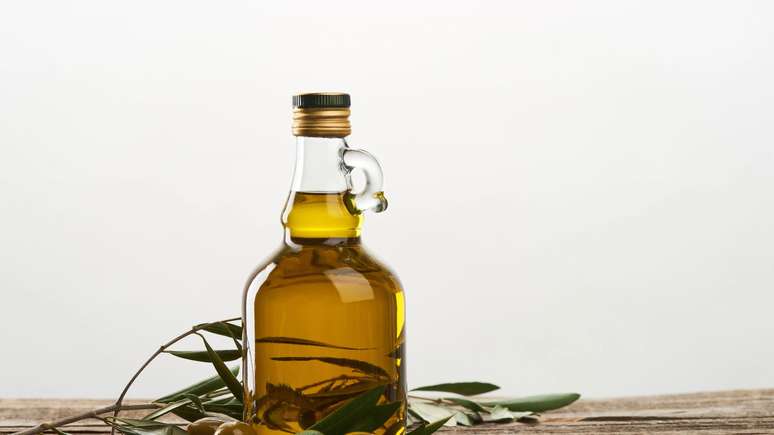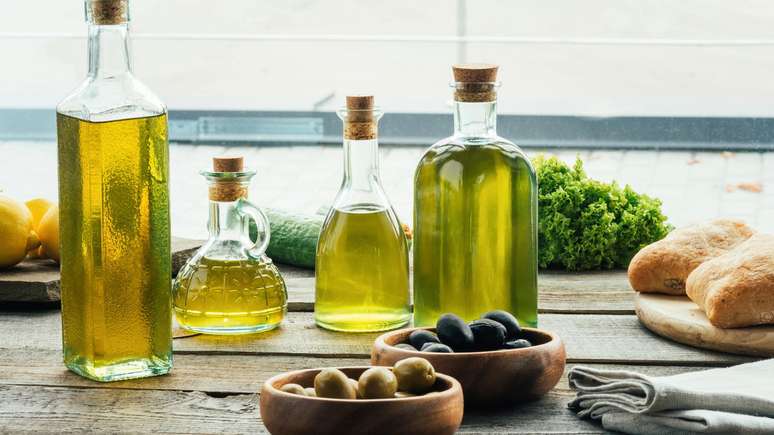The role of olive oil goes far beyond simple seasoning. Its consumption is linked to several aspects of health, attracting the attention of experts and consumers. The text shows these aspects.
Among the foods that make up the Mediterranean diet, olive oil stands out for its popularity and its nutritional value. Extracted from olives, the fruit of the olive tree, this oil is known in many cuisines for its delicate flavor and versatility in the preparation of hot and cold dishes. Over the years, the search for information on its benefits has become constant, with growing interest in updated data on its properties.
The role of olive oil goes far beyond simple seasoning. Its consumption is linked to several aspects of health, attracting the attention of experts and consumers. Whether completing salads or preparing sauces, the product is recognized for its high concentration of natural antioxidants and its profile of fats considered healthy.
What are the main properties of olive oil?
THE olive oil It has nutritional importance due to the presence of monounsaturated fatty acids, especially oleic acid, considered beneficial for the body. These components help balance cholesterol, reducing LDL and increasing HDL. In addition to fatty acids, the oil is rich in phenolic compounds, elements that help fight free radicals, responsible for premature aging.
Another important point are the micronutrients present in olive oil, such as vitamin E and vitamin K. These substances perform antioxidant functions and help blood clotting. The extra virgin version, obtained by cold pressing, is even more valuable for preserving a greater quantity of these compounds.
Why is olive oil considered a health ally?
Several studies associate the regular consumption of olive oil with benefits for the cardiovascular system. This is due to the fact that its components help reduce inflammatory processes and contribute to the proper functioning of the heart. Additionally, research shows that the oil can help control blood pressure and reduce the risk of developing chronic non-communicable diseases.
- Protection of the cardiovascular system: helps control cholesterol.
- Anti-inflammatory action: Reduces levels of inflammation in the body.
- Antioxidant action: defends cells from oxidative stress.
- Digestion support: facilitates the digestive process, especially if consumed raw.
It is important to highlight that the benefits are more evident when the olive oil It is part of a balanced diet, combined with other healthy habits.

Can olive oil be used in any preparation?
The application of olive oil in cooking can vary depending on the type chosen. Extra virgin olive oil is recommended to be used cold, in dishes such as salads, pestos and sauces, preserving its flavor and nutritional properties. Refined, less aromatic versions stand up to higher temperatures and can be used in braised and grilled dishes.
- Salads and cold dishes: they enhance the flavor of fresh vegetables and legumes.
- Finishing hot dishes: a drizzle of oil at the end enhances the aromas.
- Hot cuisine: Refined versions can be used for cooking.
It is essential to store olive oil correctly, protecting it from light and heat, to prevent it from losing its properties. In 2025, many producers will already invest in dark packaging and hermetic closure systems, guaranteeing the quality of the product until the moment of consumption.
What are the precautions when choosing and consuming olive oil?
The selection of olive oil deserves attention. It is recommended to respect the origin, the type (extra virgin, virgin or aged) and the expiry date. In Brazil, purchasing products certified by control bodies avoids exposure to undue mixtures, helping to guarantee purity.
Although it brings benefits, olive oil should be used in moderation, as it is a source of fat and has a high caloric value. Conscious consumption, combined with quality information, promotes the maintenance of a balanced eating routine.
Olive oil, considered a symbol of healthy nutrition, brings together a wide variety of functional properties, making it a frequent choice in different gastronomic cultures. Interest in this ingredient tends to grow thanks to greater access to information and the appreciation of conscious eating habits in different parts of the world.
Source: Terra
Ben Stock is a lifestyle journalist and author at Gossipify. He writes about topics such as health, wellness, travel, food and home decor. He provides practical advice and inspiration to improve well-being, keeps readers up to date with latest lifestyle news and trends, known for his engaging writing style, in-depth analysis and unique perspectives.





-1k22aaa6yuxx5.png)

